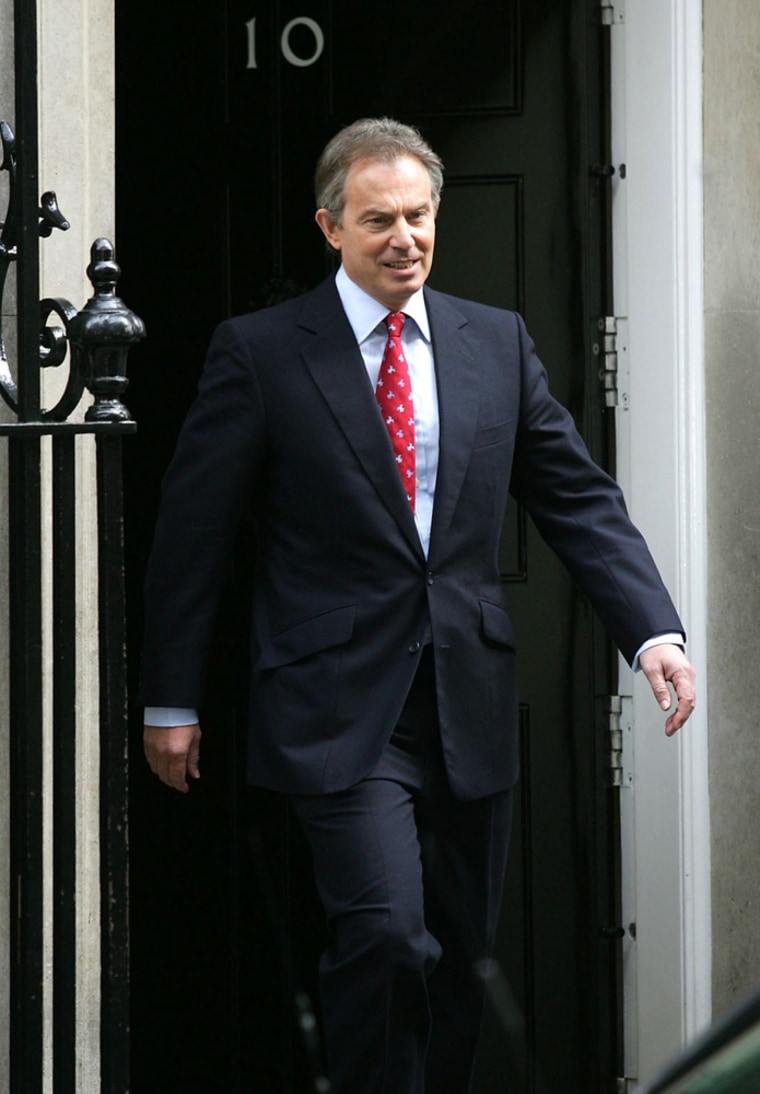Prime Minister Tony Blair on Tuesday called a national election on May 5, triggering a four-week campaign that will test a volatile electorate’s judgment of the Iraq war.
Despite lingering anger over the U.S.-led invasion, Blair’s governing Labour Party is widely expected to win a third term in office, bolstered by a strong economy.
“We are proud of what we have achieved in the last eight years,” Blair said after asking Queen Elizabeth II’s consent to dissolve Parliament.
"It's a big choice and there's a lot at stake," he added, standing on the steps of his Downing Street office. "The British people are the boss and they are the ones who will make it."
Several opinion polls published Tuesday showed Labour giving ground slightly to the main opposition Conservative Party, although still with leads of between 2 and 5 percentage points.
Given the margin of error, the parties were virtually neck and neck. Analysts say, however, the Conservatives would need a lead of several points to win the election, due to an uneven spread of constituencies across Britain's electoral map.
Personal test for Blair
The poll will be an important personal test for Blair. A charismatic and dynamic leader, he helped catapult Labour to power in 1997 and win a second landslide election victory in 2001.
But the war, and the government's use of intelligence on Iraqi weapons of mass destruction, which turned out to be wrong, have severely dented his credibility.
Blair's popularity has been further eroded by his close relationship with U.S. President George W. Bush and the perception that he slavishly follows Washington's foreign policy without exerting any real influence.
The alliance has caused tension within the Labour party and one of its parliamentary candidates, Stephen Wilkinson, announced Tuesday he would now stand for the Liberal Democrats, the only major party to oppose the war.
"Who could have thought that a Labour government would become a lapdog to George Bush's right-wing Republican administration?" he said.
However, many analysts believe Blair has weathered the worst of the Iraq storm. His personal ratings have improved markedly from last year's slump and the successful elections in Iraq have provided some vindication for the war.
The government's position is also strengthened by a strong economy and the fact that the Conservatives also backed the war and have failed to land significant punches on Blair over the conflict.
Huge majority
Labour has a massive lead in the 659-seat House of Commons, with 410 lawmakers -- 161 more than all the other parties combined. Most believe that such a lead is insurmountable. But Labour officials fear that a low turnout by core Labour supporters, coupled with a voter backlash over the war, could substantially cut the government's majority.
Such a scenario was underlined by a MORI poll published Tuesday in the Financial Times. The survey of people who said they would definitely vote put the Conservatives at 39 percent, five points ahead of Labour. MORI surveyed 1,001 adults between April 1-3.
Domestic issues such as health care, education, crime and immigration are likely to dominate the four week election campaign.
Under Britain's parliamentary system, the leader of the party with the most seats automatically becomes prime minister. Blair must fight for re-election to his parliamentary seat in the constituency of Sedgefield, northern England, which he has held since 1983.
Blair has said that he will not personally seek a fourth term in office. Parliamentary terms last for a maximum of five years and if the government is re-elected, Blair could serve until 2010 at the latest.
